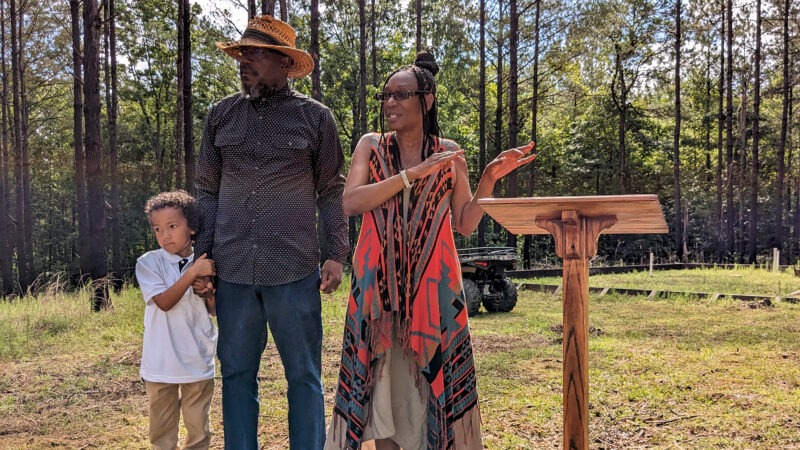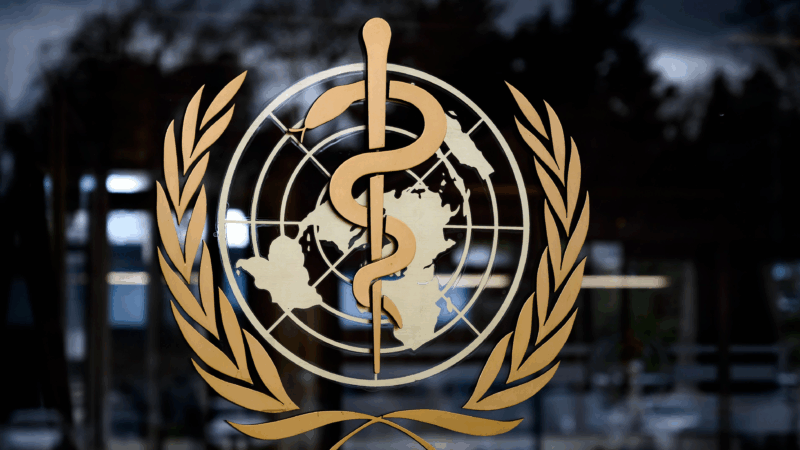Deadline approaches for USDA loan discrimination funds for underserved farmers
Kevin Springs stands between his wife, Teresa Ervin-Springs, and his grandson at their farm, TKO Farms, on June 19, 2023, in McCool, Mississippi. The couple has broken ground on a future training center on their farm to preserve ancestral Black farming knowledge.
The deadline for financial assistance for farmers who’ve faced discrimination when applying for United States Department of Agriculture (USDA) farm loans comes Saturday, January 13.
Known as the Discrimination Financial Assistance Program (DFAP), $2.2 billion in funding is available as part of the Inflation Reduction Act, a federal law passed in 2022. USDA started accepting applications for the program in July.
Five local offices in Alabama, Mississippi and Louisiana were created to help people apply. The last week of accepting applications has been busy with trying to meet the deadline, said Howard Gunn Jr, an agriculture consultant with Ag-Grow Consultants who’s been hands-on in Mississippi.
“It has been a whirlwind. [There’s] so much need out there, and I know it won’t cover all the needs of the people,” Gunn said.
The program is just one effort to acknowledge decades of discrimination during the loan process for women and minority groups. Black women, in particular, experienced a lot of barriers in getting this kind of funding, Gunn said. This is because they are at the intersection of racial and gender discrimination, according to One Earth, a nonprofit focused on climate action.
Even with this type of historic investment, advocates believe more needs to be done to address the systemic issues Black farmers face when trying to access USDA funds. DFAP is a step in the right direction, Gunn said, but “it can never pay back what was lost when it comes to farmland and the opportunity to farm.”
“On many instances, you look at the economic loss that occurred from the 70s or in the 80s,” Gunn said. “Had I received the funding that I went in requesting, how far would I have been?”
For some, the aid has come too late. Some farmers who deserve the funds have already died. But Gunn said people like him are signing up as many people as they can.
“This is a help. I don’t know if anything else will ever come this way in this fashion, but it’s here, and we are doing our best to put the word out,” Gunn said.
This story was produced by the Gulf States Newsroom, a collaboration between Mississippi Public Broadcasting, WBHM in Alabama, WWNO and WRKF in Louisiana and NPR.
An Alabama mayor signed an NDA with a data center developer. Read it here.
The non-disclosure agreement was a major sticking point in a lively town hall that featured city officials, data center representatives and more than a hundred frustrated residents.
The divorce between the U.S. and WHO is final this week. Or is it?
The U.S. is the only country allowed to withdraw from the World Health Organization. And Jan. 22 is the day when Trump's pullout announcement should go into effect. But ... it's complicated.
Trump’s Board of Peace has several invited leaders trying to figure out how it’ll work
It's unclear how many leaders have been asked to join the board, and the large number of invitations being sent out, including to countries that don't get along, has raised questions about the board's mandate and decision-making processes.
Researchers find Antarctic penguin breeding is heating up sooner
Warming temperatures are forcing Antarctic penguins to breed earlier and that's a big problem for two of the cute tuxedoed species that face extinction by the end of the century, a study said.
As Trump dismantles the existing world order, his version is still taking shape
In his second term, the president is embracing a foreign policy that breaks sharply from U.S. tradition. Both supporters and critics say he's upending a global system in place for 80 years.
Polyester clothing has been causing a stir online. But how valid are the concerns?
There has been a lot of conversation on social media about the downsides of polyester. But are those downsides as bad as they're believed to be? Are there upsides?








